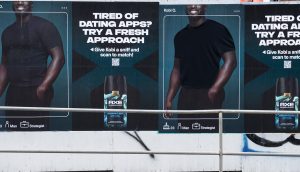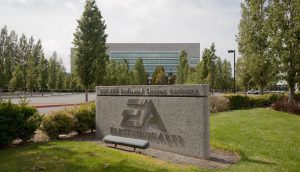Maria Luisa Francoli Plaza, global CEO for MPG, took on that role about four years ago, but it was only a few months ago that she moved to the US. That move, she says, signifies MPG’s overall plan to focus a little more on the North American media landscape. And that means Canada too. Her visit to the Canadian MPG office in Toronto – and steps away from Media Contacts, the shop’s digital specialty arm – was the first since she took on the global CEO title. As MPG aims at capturing a bigger slice of the North American media pie, her visits may be a bit more frequent – as she tells us on-the-MiC.
What brings the heightened interest in Canada?
‘Canada and the US are very much linked, and the US is a key market for us or anybody. It’s close to 50% of the entire advertising budget worldwide, so it’s very important. Last September, I moved to the US, and that shows a strong change in our strategy and planning going forward. We want the US to be a much stronger member of our network, and with the US, we want to be much more connected to Canada. We’re going to have a much stronger focus on North America.’
What is your strategy for growth in Canada? Are you going to be aggressively charging after new clients?
‘In terms of building our client roster, we have many international clients. Some of them we already work for in Canada, and some we don’t, so this would be one of our key strategies, bringing on clients we work for in the US or clients that we work for on a more global basis. Number two would be working with the agency partners we have here and trying to work with the same clients that they’ll be working with in the future. A third strategy is going after local Canadian business.’
In the context of the Canadian mediascape, can you give a sense of how MPG and Media Contacts plan to boost presence and share in the industry?
‘Well, Media Contacts was probably the first [digital specialty] agency that was started here in Canada. In terms of the network, we are the youngest worldwide, because we started not that long ago in Spain, and we have really become a global player less than 10 years ago. So being young means that we are, in certain key markets, smaller than other agencies. That’s bad if you think volume, and some people have the perception that volume is extremely important, and it was some three years ago. That’s the negative side – but only in perception, because I don’t think that’s bad at all.
‘The positive side is that because we are younger, we are much more enthusiastic about what we do, much more agile in terms of the way we move and what we can do, and the ability for us to communicate with each other is much stronger. In a smaller group, you get to facilitate communication, and that was part of our strategy position – that we’re going to be much more linked to each other, and quicker at developing and sharing experiences.
‘In the case of MPG, you could go from here in Toronto to our offices in Chile or Poland and you would find the same principles, the same methodology and the same tools. That means when the Polish guy picks up the phone and calls this office or the Chile office, they speak exactly the same language in terms of what we need to do for our clients and how we go about analyzing a situation.’
What’s your view on the changing role of agencies and the media industry’s business model?
‘I always laugh at this. You listen sometimes to some of our colleagues and they talk as if we’re the only industry that’s changing, or that change is affecting us in a particular fashion. Life is changing. The changes that we as persons, consumers, students, parents, children, professionals have faced have been dramatic.
‘I don’t think there is one business model that hasn’t changed in the last five years as a result of technology. Everything that involves a living entity – be it a company or a person – is changing fast and dramatically. So of course our business model is changing. We need to change a lot, not just because the Internet is a communication medium, but because the Internet is a business medium. We need to take advantage of that for ourselves and for our clients.’
Is traditional media losing ground at all?
‘If you’re talking about TV or video media, I think probably the way we’re used to seeing it is going to change. But TV and video content is growing fast, and it’s going to continue to be the biggest media for many years to come. The only thing is, it might not be the same networks that we’re used to seeing right now. It might not be arriving at our houses in the format we’re used to now. But that doesn’t mean traditional media brands will no longer be here. You will be seeing them on a screen. I don’t know what size, how or connected to what, but you will still see programs that you like on a screen.’
So how will the dynamic between MPG and Media Contacts evolve moving forward?
‘The role that Media Contacts is going to play is going to become bigger and bigger. Media in general is moving to digital. The way that you deal with digital media is different than analog – everything from the way you plan, the way you buy, the way you monitor, the way you do analytics. I was told when I was at Media Contacts that the Internet would be just one more medium some day. Now I’m saying that would be wrong. All media will be like Internet one day. Those two [statements] are very different.’
‘We work for our clients in a joint way. That is, we want to talk to the media people who are selling the offline properties and the online properties, because most of the media as well as the agencies were organized with the online division and the offline division. It’s very rare that the media would sell everything at the same time. They’d have their sales teams for one side and then the other side of the business. So the beauty of what we do is we put the four together. We don’t try for one member of the team taking the sole responsibility. We put the four together – digital and online – working together for one client. That’s what’s delivered the best results for our clients in terms of innovation, integration and results.
‘What you see in the US a lot is agencies that combine the two units or put the digital people at the head of the traditional agency, and I think that is not enough. Other agencies are going the route of putting the digital people at the top. Carat did that, Carat Fusion. OMD, in some parts of the business. But I don’t see people work with this sort of collaboration form that we have. To do that, and to do it well, you need strong teams on both sides.’
What about the global scale? What are the priorities for Global growth at MPG?
‘Three things take priority. One is our ability to deal with, manage and understand data. That is something that we’re putting a strong emphasis on. Now more than ever, we have the opportunity to work with real data, and see the results of our actions in a very immediate manner.
‘A second is our ability to use technology to provide service. That’s probably the biggest challenge. When you planned and bought traditional media in traditional times, you didn’t have to apply technology to deliver the service, and now you do.
‘And finally – content. You need to help your clients identify and secure the right content to connect with consumers. You have many, many more opportunities now to do it much better than before, with the limited options we’ve had.’























